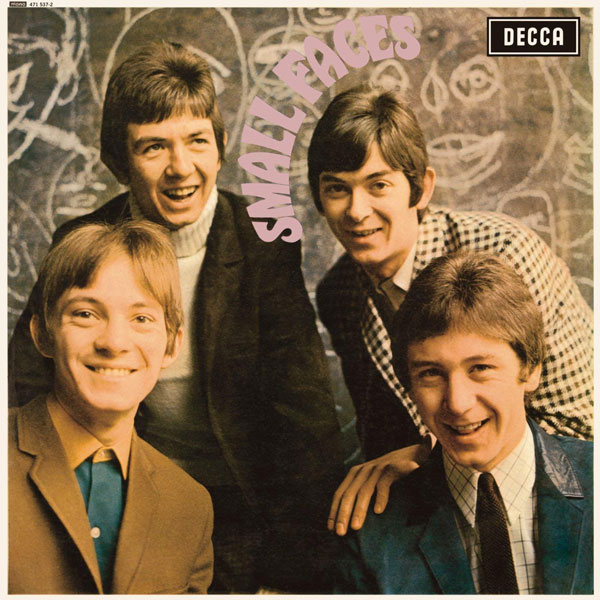
Did the Small Faces and The Who make or break the Mod scene? John Waters believes the latter.
Once again I see that the Modculture website has a feature on Small Faces. As a living ‘golden oldie’ who was present during the formative years of the Mod revolution, I feel it is perhaps time to question the relevance of the Small Faces and The Who with regard to the Mod movement. Both are generally regarded as being figureheads of the 60s Mod scene – nothing could be further from the truth.
Let’s start with an overview of 60s Mod musical preferences. Throughout the 50s and early 60s, we had been weaned on a diet of American ‘shmaltz’. The sounds of Pat Boone, Perry Como, Guy Mitchell and Kay Starr filling the British airwaves.
British contributions to the music world were not much better with David Whitfield, Dickie Valentine and Ruby Murray all huge sellers. Radio consisted of Two Way Family Favourites and Workers Playtime and TV was in its infancy with the Perry Como Show and Sunday Night at the London Palladium being at the forefront of musical entertainment.
Towards the turn of the decade, rock ‘n’ roll had reared its ugly head. Presley, Little Richard, Bill Haley and Frankie Lymon all made inroads into the British Charts. Britain responded with Cliff, Billy Fury, Marty Wilde et al. Radio Luxembourg began playing popular music and TV featured 6.5 Special, Oh Boy and later Thank Your Lucky Stars.
To a spotty little teenager growing up in the back streets of Islington, these were heady times. There was something indefatigable about some of the music on the airwaves. In particular, many of Presley’s recordings, Little Richard’s wailings, along with Ray Charles’ and Sam Cooke’s music evoked something in our psyche. What we were relating to was in fact R&B. The time was right for revolution!
The drab post-war years of the 50s – with rationing, conscription and the regimented lifestyle – was about to explode – and the teenagers of Britain would lead from the front.
The early 60s saw a proliferation of new groups opening our eyes and ears initially to the music of Muddy Waters, Chuck Berry, Bo Diddley and John Lee Hooker. R&B based groups such as the Stones, Animals and Yardbirds were introducing an enthusiastic youth audience to the music of black America. Soon, the more enlightened audience began to search out the original sources of this new music.
In London, this new music could be heard in clubs and dancehalls all over the capital. Over a short period of time, these groups started to assimilate newer sounds into their repertoire. The music of Stax, Atlantic, Chess and Motown became an essential part of the show. The clubs of Soho soon reverberated to the likes of Georgie Fame and the Blue Flames, Chris Farlowe and the Thunderbirds, Geno Washington and the Ram Jam Band, Herbie Goins and the Nightimers, Jimmy James and the Vagabonds and countless others.
The Hammond based jazz grooves of Jimmy Smith, Jack McDuff and Jimmy McGriff blended with the Blue Beat sound of Prince Buster and early Motown to create a musical ‘potpourri’ which blended perfectly with sweaty allnighters and amphetamines. The media wasted no time in jumping on the bandwagon. The ‘Mod phenomenon’ was given acres of coverage in the popular press.
TV was quick to respond to demand from a potentially enormous teenage audience – Ready Steady Go was created. Wildly touted as being a seminal influence on Mod culture, nothing could be further from the truth. In fact, presented by a crew of stilted, gushing presenters – Keith (what am I doing here?) Fordyce, Kathy ‘Queen of the Mods’ (don’t make me laugh!) McGowan and Patrick ‘Twinkletoes’ Kerr, the programme was naff in the extreme.
Ridiculous items (Mick Jagger lookalike competitions), interspersed with excruciating interviews and new dance steps (copied from punters in Soho clubs) made up the bulk of the show. It was so far removed from what is now labelled ‘street cred’ as to be laughable.
But what made Ready Steady Go essential viewing was the music. Interspersed with the usual UK fodder we were treated to performances to the likes of Otis Redding, James Brown, Sonny Boy Williamson, Prince Buster, Marvin Gaye and numerous other ‘names’ that the Mod population had never seen before. And into this mix came both the Who and Small Faces.
Both bands started their careers playing in the pubs and clubs of West and East London respectively. Both (like many other groups) were turning out cover versions of American R&B hits of the day. There is no doubt that both units contained talented musicians and songwriters – and both, in turn, had a huge influence on British popular music. What I would question is their influence on the 60s Mod movement.
The Mod movement kicked in around 1963 and peaked between 1965 – 1967 before folding. Both the Who and Small Faces achieved their first chart success in 1965 – well after the formative Mod years. Undoubtedly, both had strong affiliations with Mod. The Small Faces were essentially a group of East End Mods who played in an R&B band. The Who were also rooted in R&B but not perhaps as fashion conscious. Early product by both bands was R&B derivative – ‘What’cha Gonna Do bout It’, ‘I Can’t Explain’, ‘Anyway, Anyhow, Anywhere’ illustrate that they were following the influence of the Mod populace rather than the other way round.
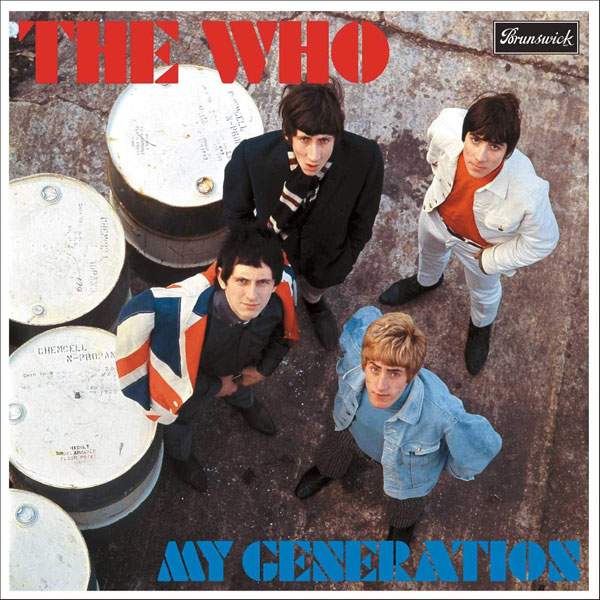
It’s well documented that the whole Who phenomenon was a calculated promotion instigated by Pete Meaden to put the group into the spotlight. Outlandish clothes aligned with the contrived stage antics of smashing guitars into amps worked brilliantly and the media hailed them as the voice of the youth movement. This was absolute rubbish of course. Whilst many teenagers, especially in rural areas, went along with this, the Mod elite saw through the hype and quickly ditched them.
Grassroots Mods would not have been seen dead in ‘union jack’ jackets or pop art t-shirts. These ‘fashions’ were touted to a gullible public as essential Mod clothing, displayed in the windows of Carnaby St for eager mini celebs and tourists. True Mods of the day would never shop in Carnaby St – preferring to set trends rather than follow them.
Perhaps the one saving grace relating to the Who was ‘My Generation’. The song may have been contrived to cash in on the youth movement but it perfectly encapsulated the feelings of teenagers throughout Britain at the time. An everlasting paean to youth angst, it is as relevant today as when released in 1965. The Small faces were slightly different in that they emerged from a Mod background in the East end of London.
They certainly ‘walked the walk and talked the talk’. Their early waxings relayed a true empathy with R&B and in Steve Marriott, they possessed a singer with a truly soulful edge to his voice. Their early promise was short-lived and they quickly degenerated into an early prototype ‘boy band’, churning out trite slices of pop (for example, ‘Lazy Sunday’). Once both bands had achieved a modicum of success they quickly cast off their Mod persona and sold out to the mighty dollar. The Who took the road to ‘Rock’megastars, whilst the Small faces split with Marriott and morphed into a backing group for another ex Mod, Rod Stewart.
They were not the only ones of course. Stalwart R&B groups such as The Animals, Spencer Davis, Yardbirds etc had all split and embraced rock/psychedelia in one form or another. Other true blue Mod heroes such as Chris Farlowe and Georgie Fame had forsaken their roots – Farlowe with the short-lived Colosseum and Fame with insipid pop songs such as ‘Bonnie and Clyde’ and some ghastly duets with Alan Price. Even the late Long John Baldry sold his soul to sing of the delights of the World Cup with ‘Mexico’.
The Mod movement in the latter sixties was caught between a rock and a hard place. The R&B scene had expired and live R&B had vanished to be replaced by long-haired psychedelic rock bands fronted by gaudily painted ex-Mods such as David Bowie and Marc Bolan (Feld). Some Mods fell by the wayside to be swallowed by the rock movement. Others moved into the new emerging forms of soul music that had emerged with the sounds of Philly or the Funk of James Brown, The Ohio Players et al. Further north the ‘northern soul’ movement came into its own loosely based around the sixties club soul of London’s Scene and Manchester’s Twisted Wheel.
The sixties Mod movement had always been a grassroots movement. Regardless of what many pundits may spout, the Mods were never influenced by the so-called Mod icons created by the media – The Who, Small Faces or Ready Steady Go.
The truth is that Mods created their own style – albeit borrowed from the USA college circuit and French /Italian styles. Their fashion savvy was captured and expanded upon by the designers and pop media circus. Once their street-level credibility had become de rigour for the masses, the Mod movement was doomed. Where once a Mod felt part of the ‘in-crowd’, he found he was suddenly part of the general population.
The singular most important part of the Mod makeup – his individuality – was gone. Mod was dead and groups such as The Who and Small Faces had played their part in hastening its departure – using Mod as a bandwagon to further their careers, then abandoning the cause once success was forthcoming.
Footnote: Incidentally it is good to see that both Georgie Fame and Chris Farlowe have returned to their roots. Chris Farlowe, in particular, is back to his best belting out R&B/Blues classics as only he can. I caught a recent gig in a small Leicester venue and he was on top form! Backed by the Norman Beaker band he was exceptional, treating the enthusiastic audience to some great classics including a tribute to Steve Marriott with a stunning version of ‘All Or Nothing’. Catch him if you can – you will not be disappointed.

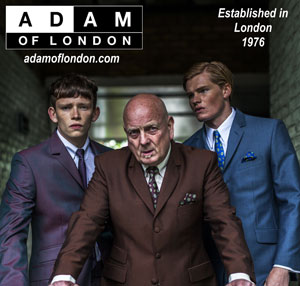

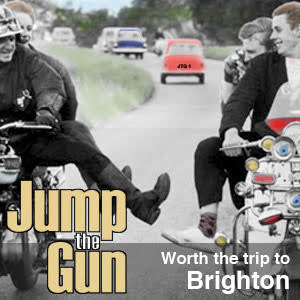
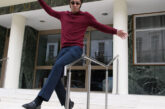

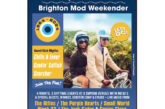
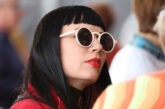
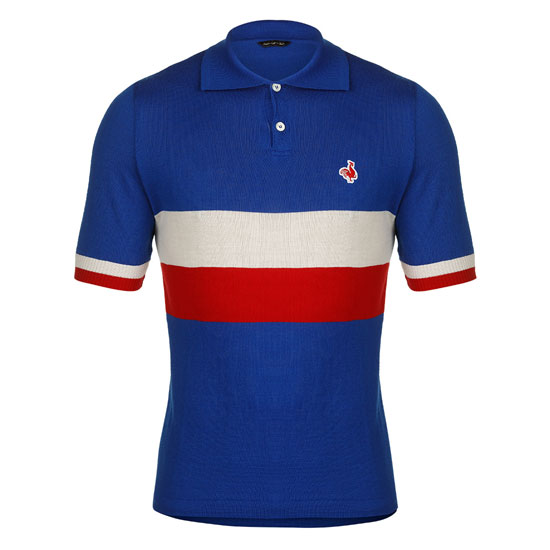
I had to stop reading this when the writer said Mod started in 1963.It started in 1957-58.And the First music they listened to in Soho was Modern Jazz not R&B.
The Who used the Mod movement to further their careers, yeah. But Small Faces? Surely they were kids who were already into the Mod thing and who just wanted to play music? So, sooo not the same.
“Their early promise was short-lived and they quickly degenerated into an early prototype ‘boy band’, churning out trite slices of pop (for example, ‘Lazy Sunday’)”
The Small Faces, a ‘boy band’ ‘churning out trite pop’? Don’t talk absolute pony. Boy bands typically do not play instruments & do not write songs, to describe the Small Faces as a ‘boy band’ & their songs as ‘trite’ betrays a complete ignorance of the band & their back catalogue.
You havent even mentioned the real mod anthem……Louie Louie by thr kinsmen